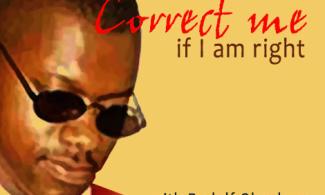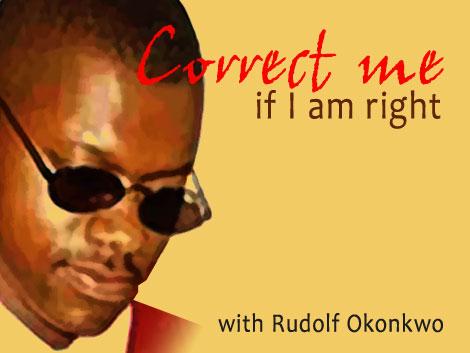
“How Ebola Developed Africa,” begins with a Fredrick the Great saying, “My principal occupation is to combat ignorance and prejudice…to enlighten minds, cultivate morality, and to make people as happy as it suits human nature and as the means at my disposal permits.” The author goes on to say that Africa in the last century did not have a single leader committed to such a goal. “Ebola,” he writes, “has ruptured the boils on Africa’s legs and now the continent can run.”
On this September evening, all along the iconic Museum Mile, men and women in distinctive African attires lined up. Some of the men were wearing a new design of dashiki that combined the elegance of a tuxedo with the comfy feel of an agbada. The women were mostly in flowing evening gowns with embellished necklines made of African fabric and sown in a 20th century style, proportionate at all the right places and accentuating their curves. A late summer breeze had cooled off the afternoon sun conveying an aroma of seawater smell in the air. From a distance, sounds of talking drums, chants and invocation of the spirits of Africa’s forefathers streamed into the space. Pockets of clouds hovering over the city’s skyline swing to the music.

Limousines dotted the street from the Metropolitan Museum of Art to the Guggenheim Museum and down to the African Center. At the entrance of the imposing African Center on 5th Avenue was a red carpet section decorated with flags of all the countries in Africa. Writers, entertainers and diplomats lined up to be photographed by paparazzi and fans of African arts. As fans whistled and screamed at a young Nollywood actor, an old man in black jeans and black Persian long-sleeved shirt commented that Chinua Achebe and Wole Soyinka would have found these spectacles absurd. The old man’s observation made sense because none of Achebe’s or Soyinka’s most celebrated works got this kind of presentation that, “How Ebola Developed Africa” was getting.
The New York Times review of the book says that “Not since Walter Rodney’s ‘How Europe Underdeveloped Africa’ has any book been written that strikes at the heart of Africa’s checkered history.” The paper called the book a seminal work which admits that the West has made amends after a century of exploitation. In New York Post, the reviewer opined that, after missing the industrial age, Africa dabbled into the information age with pre-enlightenment mindset. He gloated that it took the intervention of America for Africa to break through what Peter Gay called ‘sacred circle’ where belief confined thinking. He lamented that the author did not go far enough to acknowledge how much African nations owe the rest of the world for its rescue. It was a subtle reference to President Obama’s investment in the fight against Ebola in 2014 when he sent over 3000 US troops to West Africa to build treatment centers, hospitals, and to train health care workers. Then the newspaper opposed by move. But since its publisher, Rupert Murdoch, died, the Post has been born again, somewhat.
“How Ebola Developed Africa,” begins with a Fredrick the Great saying, “My principal occupation is to combat ignorance and prejudice…to enlighten minds, cultivate morality, and to make people as happy as it suits human nature and as the means at my disposal permits.” The author goes on to say that Africa in the last century did not have a single leader committed to such a goal. “Ebola,” he writes, “has ruptured the boils on Africa’s legs and now the continent can run.”
The book’s narrative follows the grueling journey of a continent and its people from the day eight Ebola workers were murdered in Guinea. It tracks the journey taken by two West African doctors touched by the Guinea incident from the comfort of their medical practices in America back to Africa. Their years of struggle to vanquish ignorance and institute reason at the darkest corners of Africa did not gain traction until the big Ebola outbreak happened years after. When faced with a potential extermination of millions of its citizens, Africans change their mindset by embracing the concept of empirical proof instead of superstition.
“The long awaited revolution did not come,” the author writes, “instead Ebola came.” He goes on to write that Ebola undermined religion, social and political orders by the strength of its devastation. He notes shifts in consciousness, the drafting and implementation of social contracts aimed at securing what Francis Hutcheson called, “greatest happiness for the greatest numbers.” Giving examples after examples, he illustrates how from the ashes of ruin “Ebola precipitated the move from stomach infrastructure to intellectual infrastructure.”
Most of the people that have gathered were looking forward to seeing former President Barack Obama who was billed as a special guest of honor. But their excitement was dashed when U.S. Senator Chelsea Clinton of New York, a trustee of the Africa Center, arrived and announced that President Obama was stuck in Kenya where he was visiting treatment centers being built by American soldiers at what has become the epicenter of the latest Ebola outbreak.
The next big guest that the audience members were looking forward to seeing, Chimamanda Ngozi Adichie, soon arrived. The limousine that dropped her off appeared to be the longest. Adichie had won the Nobel Prize for Literature the year before. This was going to be her first public outing since she received her prize in Oslo, Norway.
As she stepped out of the limousine, fans rushed to the front. It took several New York Police officers to hold the line and stop autograph seeking fans from crossing the yellow line. The old man, picking on the few dots of gray hair left on his head, noted that she had aged gracefully. With hair now locked, skin in a glowing chocolate blend, she strolled the red carpet with poise. The wrinkles around her neck mixed with the emerging bag under her eyes gave her the look of a battle-tested amazon. “She reminded me of Toni Morison,” the old man said. “She used to be a visiting professor at my university. Morrison, I mean.”
At the park opposite the museum a buzzing sound suddenly developed. As the audience turned to look, they saw three Amazon drones dropping off boxes and boxes of books. The old man said that the publisher, Simon & Schuster, had underestimated the interest in the book so, when they noticed the lines formed by fans around the African Center, they ordered more copies delivered.
Inside the multipurpose auditorium of the center, the masses outside filed in. The soaring three-storey high space sucked up the high octane waves coming from the audience. Cozy and vibrant, a cocktail reception followed soon at the Roof Terrace where writers and entertainers mingled with diplomats and African arts and cultural enthusiasts. From the wall of windows on the roof streamed rays of light. The characteristic odor of contemporary African art work in exhibition on the first and second floor galleries fused with a variety of African cuisines offered to the guests.
Njoroge Ngugi, the son of Kenyan writer, Ngugi wa Thiong’O, Africa’s last Nobel Prize winner in Literature before Adichie’s win last year, entertained the guests with his storytelling skills. As the designated reviewer of the book, he intermingled with guests, a glass of wine permanently in his hand. With waiters particularly interested in topping it up for him, the old man noted that it would be an interesting night.
“The final destination of any people is to that point where they have the freedom to use their own intelligence,” he said. As his circle of listeners beamed with smile and nodded ferociously, he quickly added, “that is not me, that was Immanuel Kant.”
At the peak of the Ebola outbreak, African leaders could not travel abroad for treatment because flights from most parts of Africa were barred from entering most continents of the world. Their children abroad could not return home. It forced the leaders to look inward and build infrastructures for their own people. Well-equipped hospitals cropped up, research institutions displaced religious franchises, and logic got a seat at decision tables. In the midst of sustained death by Ebola, myth crumbled, miracles waned and superstition ran its course. When the only known vaccine against the virus failed, faith’s failure to intervene became its undoing.
The rise of reason became clear when Njoroge Ngugi was called upon to review the book. He staggered to the podium, opened his note and took a glance at it. As he began to speak, he lost his grip of the podium and fell. People outside the center, at the intersection of the Upper East Side and East Harlem, could hear the hiss of the audience. The old man tweeted that picture of the Mr. Ngugi on the floor. It was immediately retweeted again and again. Before the paramedics came, it was trending in Abuja and Nairobi. It was 2034, after all.